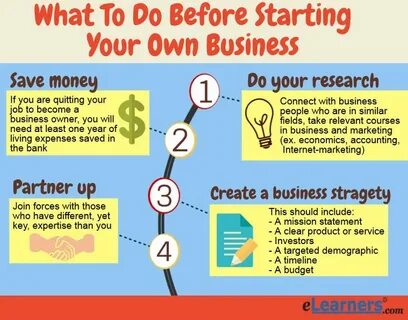Selling My Business: Key Strategies for a Successful Exit
Are you considering selling your business and are unsure of where to start? The process of selling a business can be complex and overwhelming, but with the right strategies, you can ensure a successful exit. In this guide, we will explore key strategies for selling my business, including important considerations, steps to prepare your business for sale, and tips for maximizing value. Whether you are just starting to think about selling your business or are already in the process, this guide will provide you with valuable insights to help you achieve a successful exit.
“Selling My Business: Key Strategies for a Successful Exit” is a comprehensive guide that offers valuable insights and practical advice for business owners looking to sell their companies. It covers a wide range of topics including valuation, preparing the business for sale, finding the right buyer, negotiating the deal, and navigating the legal and financial aspects of the transaction. The book also delves into the emotional and personal considerations that come into play when selling a business. Written by experts in the field, this book is an essential resource for anyone considering an exit strategy for their business.
The Beginner’s Guide to Selling My Business Successfully

The Beginner’s Guide to Selling My Business Successfully is a comprehensive resource that provides step-by-step guidance on the process of selling a business. It covers important topics such as determining the value of your business, preparing your business for sale, finding potential buyers, negotiating the sale, and completing the transaction. The guide also includes practical tips, real-life examples, and valuable insights from industry experts to help first-time sellers navigate the complexities of selling a business. Whether you’re looking to sell your business in the near future or simply exploring your options, this guide will equip you with the knowledge and tools needed to achieve a successful sale.
Steps to Prepare for Selling My Business in the Next Year

1. Assess the value of your business by getting a professional business valuation.
2. Clean up your financials and ensure they are in order for potential buyers to review.
3. Identify any potential risks or liabilities within your business and take steps to mitigate them.
4. Consider hiring a business broker to help facilitate the sale and navigate the process.
5. Develop a comprehensive exit strategy and succession plan for the business.
6. Evaluate your current team and consider any necessary changes or additions to ensure a smooth transition for the new owner.
7. Update your business infrastructure and technology to ensure it is up-to-date and attractive to potential buyers.
8. Develop a marketing plan to attract potential buyers and generate interest in your business.
9. Prepare all necessary documentation and contracts for the sale of your business.
10. Seek legal and financial advice to ensure you understand the implications and requirements of selling your business.
Common Mistakes to Avoid When Selling My Business

1. Overvaluing your business: Sellers often have an inflated view of their business, leading them to ask for an unrealistic selling price. It’s important to conduct thorough research and seek professional advice to determine a realistic valuation.
2. Neglecting financial transparency: Transparency is crucial in the sale of a business. Failing to provide accurate and detailed financial records can deter potential buyers and lead to mistrust in the negotiation process.
3. Failing to prepare in advance: Selling a business is a complex process that requires careful planning and preparation. Failing to prepare in advance can result in delays, disputes, and ultimately, a failed sale.
4. Not seeking professional assistance: Selling a business involves legal, financial, and operational complexities. Engaging professionals such as business brokers, attorneys, and accountants can help navigate these complexities and ensure a smooth and successful sale.
5. Ignoring market trends and conditions: It’s essential to stay informed about market trends and conditions when selling a business. Ignoring these factors can lead to missed opportunities or selling at an inopportune time.
6. Neglecting to maintain business operations: Focusing solely on the sale process can lead to a decline in business operations. This can negatively impact the value of the business and deter potential buyers.
7. Being inflexible in negotiations: Successful negotiations require flexibility and compromise. Holding firm on non-essential terms can lead to a breakdown in negotiations and a missed opportunity to sell the business.
8. Failing to consider potential tax implications: Selling a business can have significant tax implications. Failing to consider these implications and plan accordingly can result in unexpected tax liabilities.
By avoiding these common mistakes, sellers can increase their chances of a successful and lucrative sale of their business.
How to Value My Business Before Selling It

Valuing your business before selling it is an essential step in the process of preparing for a successful sale. There are several methods for valuing a business, including the market approach, income approach, and asset-based approach. The market approach involves comparing your business to similar businesses that have recently been sold. The income approach considers the future earning potential of your business. The asset-based approach focuses on the value of the business’s assets and liabilities. It is recommended to consult with a professional business appraiser or a business broker to get an accurate valuation of your business before selling it. Properly valuing your business can help you set a realistic asking price and attract serious buyers.
Marketing Strategies for Selling My Business Quickly
There are several effective marketing strategies for selling your business quickly. One approach is to leverage digital marketing tactics such as targeted social media advertising, search engine optimization (SEO), and email marketing to reach potential buyers. Creating a compelling and professional online presence for your business can help attract interested parties.
Networking and outreach are also crucial in marketing your business for a quick sale. Utilize your professional network and industry connections to spread the word about your business being on the market. Additionally, consider reaching out to specific individuals or groups who may have an interest in acquiring your business.
Another effective strategy is to showcase the strengths and potential of your business through well-crafted marketing materials, such as a detailed and visually appealing sales prospectus or informational website. Highlighting key financial and operational metrics, as well as the unique value proposition of your business, can help generate interest and drive a faster sale.
Lastly, consider enlisting the help of a business broker or M&A advisor who can assist with developing and executing a targeted marketing strategy to find qualified buyers. Their expertise and industry connections can significantly expedite the sales process.
Legal Considerations When Selling My Business
When selling a business, there are several legal considerations that need to be taken into account. These include the transfer of ownership, contracts and agreements, tax implications, intellectual property, employee matters, and potential liabilities.
It is important to ensure that the transfer of ownership is done properly and that all necessary documents are in place to transfer the business to the new owner. This may include obtaining shareholder approval, updating corporate records, and complying with any legal requirements for the sale of the business.
Contracts and agreements with customers, suppliers, and employees also need to be addressed. It is important to determine how these contracts will be affected by the sale of the business and to ensure that all parties are properly notified and that any necessary consents are obtained.
The tax implications of selling the business also need to be carefully considered. This includes understanding the tax consequences of the sale and how to structure the sale in the most tax-efficient manner.
Intellectual property rights, such as trademarks, copyrights, and patents, also need to be addressed. It is important to ensure that these rights are properly transferred to the new owner and that any necessary agreements are in place to protect the intellectual property of the business.
Employee matters, such as severance pay, benefits, and potential layoffs, also need to be addressed when selling a business. It is important to comply with any applicable labor laws and to ensure that employees are treated fairly throughout the sale process.
Finally, potential liabilities of the business need to be identified and addressed. This may include outstanding debts, pending litigation, or other potential liabilities that could affect the value of the business or the success of the sale.
Overall, it is important to seek legal advice when selling a business to ensure that all legal considerations are properly addressed and that the sale is conducted in a legally compliant manner.
Finding the Right Buyer for Selling My Business
Selling a business can be a complex and daunting process, especially when it comes to finding the right buyer. It’s important to consider factors such as the buyer’s financial capabilities, their experience in the industry, and their long-term goals for the business. Networking within industry circles, reaching out to potential buyers through a business broker, and utilizing online platforms can all be effective strategies for finding the right buyer for your business. It’s crucial to thoroughly vet potential buyers and ensure that they are a good fit for taking over and growing the business. Additionally, seeking professional guidance from a business advisor or attorney can help navigate the sale process and ensure that you find the best possible buyer for your business.
The Emotional Side of Selling My Business
The emotional side of selling a business can be extremely complex and varied. For many business owners, their company has been a labor of love, representing years of hard work, sacrifice, and dedication. Selling the business can bring up feelings of loss, sadness, and even a sense of identity crisis. It can be difficult to let go of something that has been such a big part of your life.
On the other hand, selling a business can also bring a sense of relief, freedom, and excitement for the future. It can offer financial security and the chance to pursue new opportunities or simply enjoy a well-earned retirement.
Navigating the emotional aspects of selling a business is crucial for both the seller and the potential buyer. It’s important for the seller to take the time to acknowledge and process their feelings, seek support from friends, family, or a professional therapist if needed, and to carefully consider their reasons for selling and what they hope to achieve from the sale. This can help ensure that the decision to sell is made for the right reasons and that the process goes as smoothly as possible.
For the potential buyer, understanding the emotional investment the seller has in the business can help in negotiations and in creating a smooth transition after the sale is complete. It’s important to approach the sale with empathy and respect for the seller’s emotional journey.
Overall, selling a business is a significant life event that can bring up a range of emotions. It’s important for all involved to recognize and address these emotions in order to achieve a successful and satisfying outcome.
Tips for Negotiating the Best Price When Selling My Business
See also: entrepreneur ideas
Here are some tips for negotiating the best price when selling your business:
1. Know your worth: Before entering into negotiations, it’s important to have a clear understanding of the value of your business. This can be determined by analyzing your financial statements, assets, and market conditions.
2. Build strong relationships: Developing a positive and open relationship with potential buyers can help facilitate negotiations. Building trust and rapport can make both parties more willing to work together to reach a mutually beneficial agreement.
3. Highlight strengths: When presenting your business to potential buyers, emphasize its unique selling points and strengths. This can help justify a higher asking price and demonstrate the value of the business.
4. Be flexible: While it’s important to have a target price in mind, being open to negotiation and flexible with terms can help facilitate a deal. Consider potential trade-offs or compromises that can add value to the deal without sacrificing your bottom line.
5. Seek professional advice: Consider enlisting the help of a business broker or financial advisor to assist with negotiations. Their expertise can help you navigate the process and secure the best possible price for your business.
By following these tips, you can increase your chances of negotiating the best price when selling your business.
Life After Selling My Business: What to Expect
After selling your business, there are a number of things you can expect to experience. One of the first things you may notice is a sense of freedom and relief from the responsibilities and stresses of running a business. This newfound freedom can be both exhilarating and overwhelming as you navigate the next steps in your life.
Financially, you can expect to receive a lump sum payment for the sale of your business, which can provide you with a sense of security and stability. However, it’s important to carefully consider how you will manage and invest this money to ensure long-term financial stability.
Emotionally, you may experience a range of feelings, from excitement and pride in your accomplishment to a sense of loss or even identity crisis as you adjust to life without your business. It’s important to give yourself time to process these emotions and consider seeking support from loved ones or a professional counselor if needed.
In terms of what to do after selling your business, you may want to take some time to rest and recover from the stress of the sale process. You could also use this opportunity to explore new passions, hobbies, or travel that you may not have had time for while running your business.
It’s also important to think about what your long-term goals and priorities are. Some people choose to start a new business, while others may focus on retirement, philanthropy, or spending more time with family.
Overall, life after selling your business can be a time of great transition and change. It’s important to be patient with yourself as you navigate this new chapter and take the time to consider what you want your life to look like moving forward.
In conclusion, the process of selling my business requires careful planning, strategic decision-making, and effective execution. By following the key strategies for a successful exit outlined in this content, I can maximize the value of my business and ensure a smooth transition. With thorough preparation and the right approach, selling my business can lead to a profitable and rewarding outcome.
See also
https://invest.egyprojects.org/new-small-business-ideas
https://bakkah.com/ar/knowledge-center/%D9%85%D8%B4%D8%A7%D8%B1%D9%8A%D8%B9-%D8%A7%D9%84%D8%B3%D8%B9%D9%88%D8%AF%D9%8A%D8%A9
https://mashroo3k.com/post/%D9%85%D8%B4%D8%A7%D8%B1%D9%8A%D8%B9-%D8%A7%D8%B3%D8%AA%D8%AB%D9%85%D8%A7%D8%B1%D9%8A%D8%A9-%D9%86%D8%A7%D8%AC%D8%AD%D8%A9-%D9%85%D8%B4%D8%B1%D9%88%D8%B9%D9%83/
https://bakkah.com/ar/knowledge-center/%D9%85%D8%B4%D8%A7%D8%B1%D9%8A%D8%B9-%D9%84%D9%87%D8%A7-%D9%85%D8%B3%D8%AA%D9%82%D8%A8%D9%84



